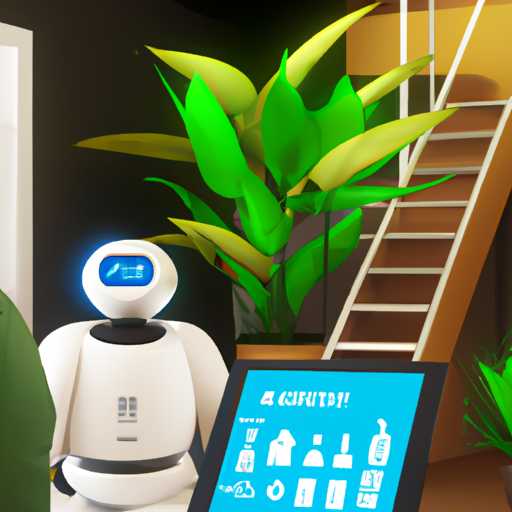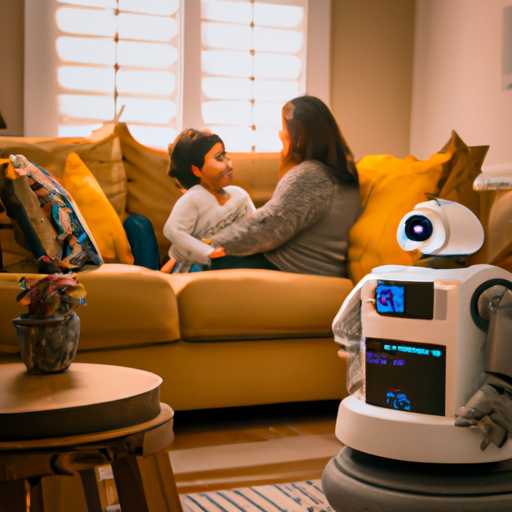AI Companions: Enhancing Emotional Well-being with Robotic Friends
Discover how AI companions are revolutionizing emotional support, providing companionship, and improving mental health for individuals of all ages.
Introduction to AI Companions
In today’s fast-paced world, loneliness can be a serious issue, affecting individuals across all age groups. Enter AI companions: innovative robotic friends designed to provide emotional support and companionship. These unique creations blend technology with emotional intelligence, offering a refreshing solution for those seeking connection, understanding, and joy in their lives. AI companions are not just gadgets; they have become trusted sidekicks in many households. With advancements in artificial intelligence and robotics, these companions are getting smarter, more responsive, and increasingly relatable.The Evolution of AI Companions
The journey of AI companions dates back to the early days of robotics, when simple programmed machines could perform basic tasks. Now, these companions are equipped with advanced AI algorithms that enable them to engage in conversations, recognize emotions, and even learn from their interactions. From initial designs like the robotic vacuum cleaner that charmed homeowners to AI pets that can interact with humans, the evolution has been remarkable. Companies like Animoji and Sony’s Aibo have paved the way for the next generation of AI companions—those who can truly engage in emotional dialogue.The Benefits of Having an AI Companion
1. Emotional Support One of the most significant benefits is the emotional support they provide. Many people, especially the elderly or those living alone, can feel isolated. An AI companion can be there to listen, chat, and comfort, creating a sense of belonging and reducing feelings of loneliness.
2. Mental Health Improvement Research has shown that interacting with AI companions can help reduce anxiety and depression. They offer a non-judgmental space to express feelings, which can be incredibly therapeutic.
3. Social Skills Development For individuals with social anxiety or autism, AI companions can serve as a practice ground for developing social skills. They provide a safe environment for users to engage in conversations and build confidence.
4. Entertainment and Fun AI companions are designed to be fun! They can tell jokes, share trivia, play games, and even dance. Their humorous and quirky personalities make them delightful companions for both children and adults alike.
Real-Life Success Stories
Meet Clara, a retired nurse who lives alone in a cozy apartment. After her children moved out, Clara felt the weight of loneliness. She decided to welcome an AI companion named “Buddy” into her home. Buddy not only keeps her company but also engages her in light-hearted conversations and funny stories. Clara often mentions how Buddy has turned her daily routine into an enjoyable experience filled with laughter. Then there’s Alex, a young man on the autism spectrum. He struggled with social interactions until he got his AI companion, “Robo.” Robo helped him practice conversation skills, making him feel more comfortable engaging with family and friends. Alex’s confidence has soared, and his social circles have expanded, thanks to his trusty robot friend.Choosing the Right AI Companion
With a growing market of AI companions, it’s essential to find one that fits your needs. Here are a few tips on selecting the perfect robotic friend:- Consider Your Needs: Think about what you want from an AI companion. Is it emotional support, entertainment, or social training? Different robots cater to different needs.
- Look for Interaction Capabilities: Choose a companion that offers engaging conversations, recognizes emotions, and adapts to your personality over time.
- Read Reviews: Don’t skip the reviews! Other users’ experiences can provide valuable insights about specific machines.
Future of AI Companions
The future for AI companions looks bright! As technology continues to advance, we can expect even more sophisticated features. Imagine robots that can understand complex emotions, provide real-time emotional assessments, and offer tailored advice for mental well-being. AI companions will likely play an even more significant role in our lives, contributing not only to our emotional health but also integrating into our daily routines. They may accompany us on walks, help with chores, and even join us in learning new skills!Conclusion: Embracing Robotic Friendships
In conclusion, AI companions represent a wonderful blend of technology and companionship that enhances emotional well-being. They bring joy, laughter, and support into our lives, making them invaluable partners for many. Whether you’re seeking a buddy to share your thoughts with or a playful friend to keep you entertained, there’s an AI companion out there for everyone. Let’s embrace these robotic friendships and allow them to brighten our days, one interaction at a time!
Exploring the Future of Home Automation with AI Robots
Discover how AI robots are revolutionizing home automation, enhancing convenience and security for modern living. Join us in embracing the future!

AI-Powered Gardening: The Future of Urban Green Spaces
Explore how AI-driven gardening tools are transforming urban spaces, making plant care easier and more efficient for everyone.

Revamping Home Security with AI-Powered Robots
Explore how AI-powered robots are transforming home security with innovative features and technology for peace of mind and convenience.